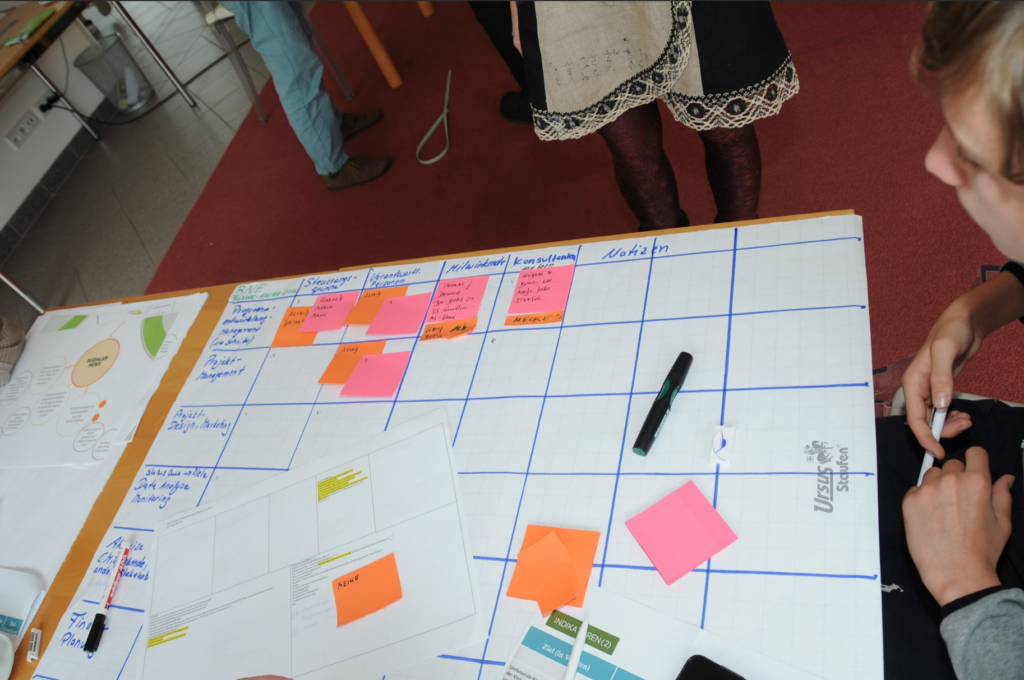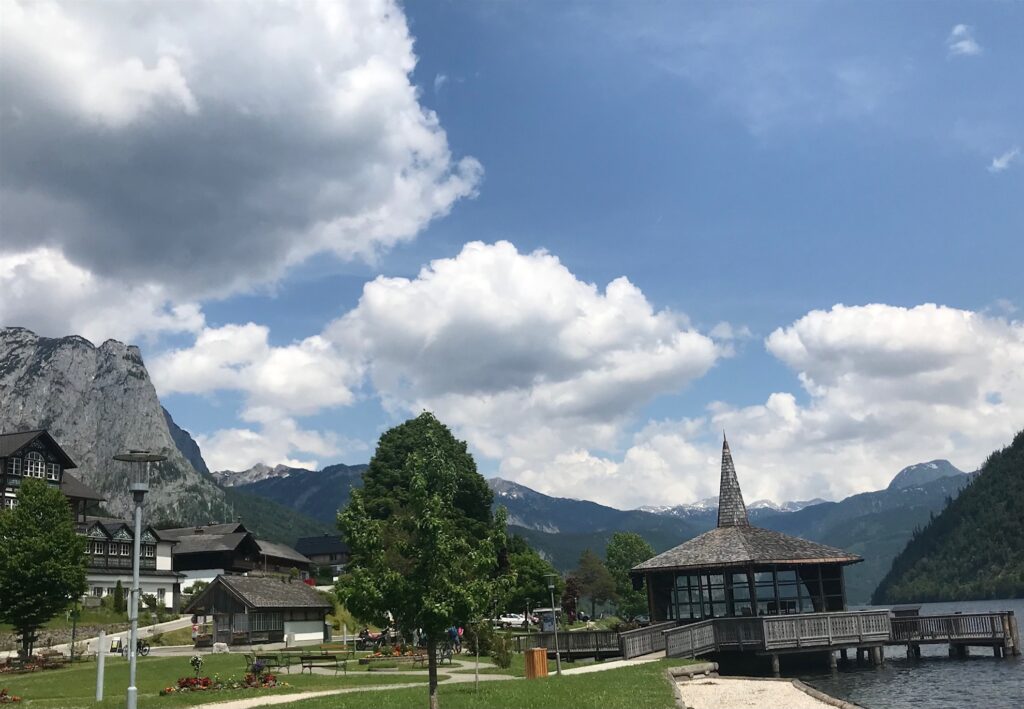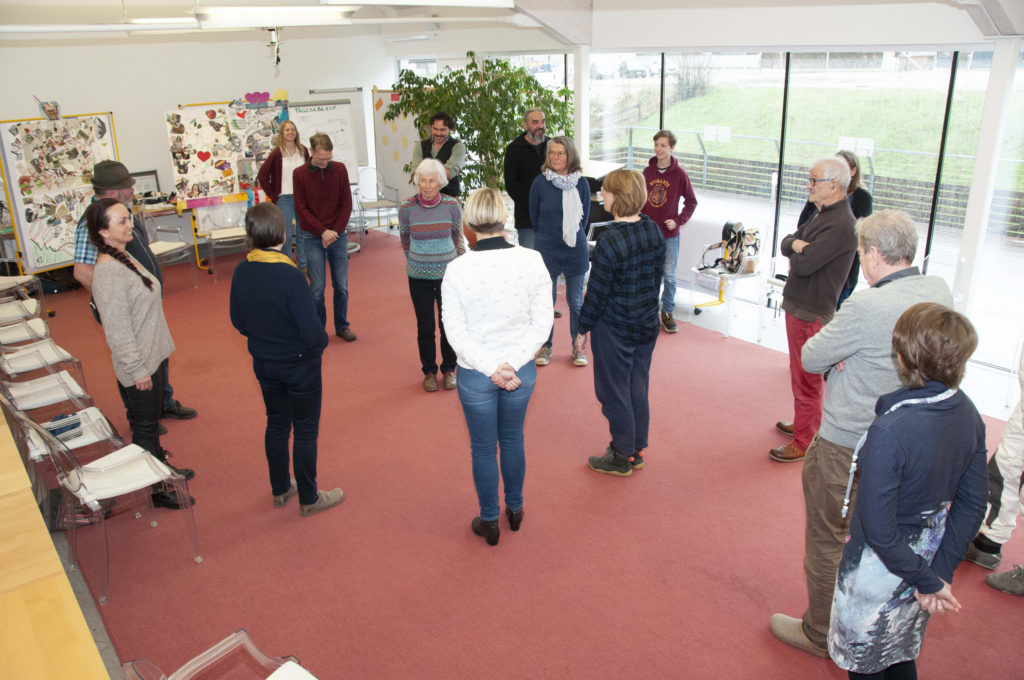
After we had dealt intensively with the goals of the participants and with the system in which these goals interact and ultimately interact in the first two workshops, the third workshop was about how these in view of the climate crisis are achievable.
“You can’t manage what you don’t measure” is a widespread management wisdom. I can only achieve goals if I formulate them specifically.
How can we know if we are getting closer to our goals (can achieve them in the planned time)? Those who embark not only set their own goals, but also the yardstick (the indicators) they want to use to measure progress towards their goals. So how do we want to measure the goal of a good life in order to achieve “adaptation” to climate change in such a way that people in the region can achieve their goals as far as possible. Ultimately, this is the only way to measure the success of adaptation to climate change.
Based on the results of the second workshop and the presentation by Mathias Kirchner (see below), Meike Bukowski from the University of Salzburg developed mind maps for the three dimensions of sustainability in the sense of the donut economy, in which the goals formulated by the participants are systematized accordingly so that the participants in the third workshop could propose appropriate measurement concepts.

In a first step, the participants added the system images from the second workshop. We document the topics mentioned by the participants here:
- Economy: “More incentives for willingness to change (image/recognition)”, “More vegetable/grain cultivation as well as sheep and poultry”, “Regional purchasing by the public sector” and “Educational objective: sustainable food production”.
- Ecology: “New form of management”: “Alternative energy production”, “Landscape”, “Locations”, “Rules for construction”, “Subsidies”.
- Social: Strengthen voluntary work, create attractive offers for it, communicate, involve newcomers, number of offers and volunteers.
Mathias Kirchner, climate change adaptation expert from the University of Natural Resources and Life Sciences (BOKU), then showed in his presentation how the goals formulated by the participants so far will be affected by climate change in the topics/areas of life that have been developed as important.
In the third step, indicators were looked for, which we are only giving here as examples, because they will be worked on in the fourth workshop in order to take concrete steps, the success of which in relation to the goals can then also be tracked accordingly.

Three groups came together along the sustainability dimensions “economy”, “ecology” and “social”. Some important goals with corresponding indicators that the participants identified were:
increase the added value through regional food direct marketing by 100% by 2030
The proportion of newly planted mixed forest / monoculture to 90% by 2030
50% of all farmers should work ecologically
Lifelong learning “how do I work with nature?” (model farm “Agriculture for everyone” (to help))
Based on this workshop result, the indicators are to be condensed into an indicator set according to the concept mentioned at the beginning of three indicators per dimension (and also the subjective well-being of those involved), which relate to the most diverse topics worked out by the participants.
The number three (indicators per dimension) results from the requirement to develop a manageable concept for the actors themselves. These should then be refined in the 4th workshop in order to derive concrete steps into the desired future.



One thought on “Measuring climate change adaptation comprehensively”